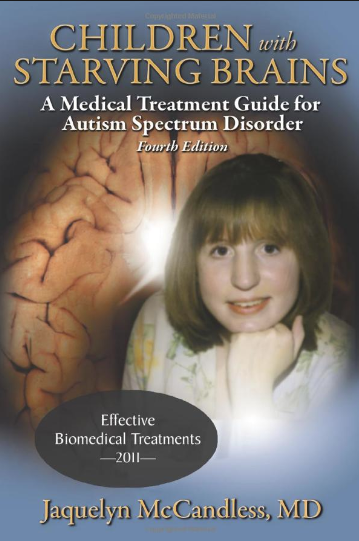Understanding Functional Medicine: A Closer Look for Parents of Children with ASD
Functional medicine represents a shift from the traditional symptom-focused healthcare model to one that is deeply rooted in uncovering and addressing the underlying causes of illness. This approach is particularly relevant for parents navigating the complexities of Autism Spectrum Disorder (ASD) with their children, as it offers a more holistic view of health and well-being.
What is Functional Medicine?
Functional medicine is defined by its patient-centric approach, where the focus is on understanding the unique factors contributing to an individual's health challenges. This model is science-based, drawing on the latest research to inform treatment plans that are tailored to each patient's specific needs. It considers genetic, biochemical, and lifestyle factors, recognizing that these elements can combine in unique ways to influence health.
For parents of children with ASD, this approach is compelling. It acknowledges that a singular condition like ASD can have diverse causes and manifestations. Consequently, functional medicine seeks to develop personalized treatment strategies that address specific health concerns, rather than offering a one-size-fits-all solution.
The Importance of Functional Medicine
In a world dominated by acute care focused on treating immediate, observable symptoms, functional medicine stands out for its commitment to unraveling the complexities of chronic conditions. Traditional healthcare often falls short in managing chronic diseases because it overlooks the nuanced interplay of genetic predispositions, environmental exposures, and lifestyle factors.
For families affected by ASD, these considerations are crucial. The environment in which we live, our daily habits, and our genetic makeup can all influence the manifestation and severity of ASD symptoms. Functional medicine's emphasis on these factors makes it a valuable approach for those seeking comprehensive care strategies.
Bridging the Research-Practice Gap
A notable challenge in healthcare is the lag between scientific discoveries and their application in clinical settings—a gap that can extend up to 50 years, especially in areas like chronic illness management. This delay is particularly relevant for ASD, where advancements in understanding and treatment can significantly impact care and quality of life.
The Role of MAPS Physicians in ASD Care
The Medical Academy of Pediatric Special Needs (MAPS) directly addresses this gap through its Fellowship Program, designed to equip medical professionals with the advanced skills necessary to care for children with special needs, including ASD. MAPS physicians are trained to consider the full spectrum of factors affecting health, from genetic anomalies to environmental influences, offering a beacon of hope for families seeking to navigate the challenges of ASD with informed, compassionate care.
MAPs or Functional doctors look deep into the body's "biochemistry" processes - they are the ones who can define if your kid has PANS/PANDAS. They can define if your kid is poisoned with various heavy metals like aluminum, mercury, or lead and if it is the case assign a detox protocol. This kind of doctor can help with defining the dietary constraints and so on.
For instance, in the case of our son, the hair analysis uncovered a high amount of aluminum and lead. As a countermeasure to such toxic exposure, we installed water filtration systems in our house, stopped using any aluminum foil for food, stopped buying any food in metal containers, like cans, and change baking sheets from iron to ceramics, and so on. We also checked our house for mold - a very common contributor to various diseases.
The "starving brain" is the perfect phrase describing the autism condition - human brain does not get enough building blocks like hormones, nutritions, oxygen, or whatever the specific cause. Autoimmune disease is a condition where the brain/body does not recognize its own cells produced by the guts.
Good analogy - imagine you are being fed oversalted soup every day? Can you eat it? Hardly. In case there are some toxic poisons in the body like aluminum, mercury, or lead - the biochemical reactions do not produce the correct formula for various components that the brain needs for normal development. If the soup recipe states it needs a single spoon of salt for 5 liters, adding 3-5 spoons will destroy 5 liters of soup and you won't be able to eat that and go hungry.
There could be other conditions - if the pot you use to cook the soup has wholes, (leaky gut) by the time you finish cooking, you have 2 liters of soup instead of 5, and again you go hungry.
In other words, a "starving brain" is limited in ability of building "appropriate" neurological pathways thus causing non-neurotypical, i.e. autistic child's development.
Children with Starving Brains: A Medical Treatment Guide for Autism Spectrum Disorder, Dr. McCandless. This book is a manual that illustrates the protocols that Functional and MAPS doctors are following to treat ASD.
"Why would your immune system attack?" Dr. John C. Thomas | The Autoimmune Trilogy

